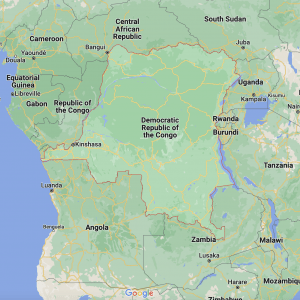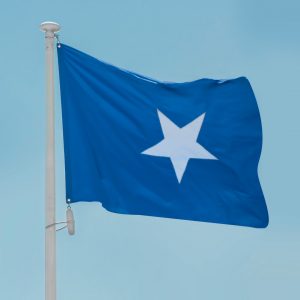West Africa bloc says military intervention in Niger ‘last resort’
Abuja, Nigeria (AFP):
West Africa’s regional bloc on Wednesday said a military intervention in junta-ruled Niger was “the last resort” as Nigeria cut electricity supplies to intensify pressure on the country’s coup leaders.
Military chiefs from the group met on Wednesday to frame a response and a delegation was in Niger for negotiations, a week after the coup that shook the fragile nation and prompted ex-colonial power France to evacuate its citizens.
Economic Community of West African States (ECOWAS) leaders have already imposed trade and financial sanctions and gave the coup leaders a week to reinstate Niger’s democratically elected president or face potential use of force.
“(The) military option is the very last option on the table, the last resort, but we have to prepare for the eventuality,” said Abdel-Fatau Musah, ECOWAS commissioner for political affairs, peace and security.
An ECOWAS team headed by former Nigerian leader Abdulsalami Abubakar was in Niger to “negotiate”, added Musah, speaking at the start of a three-day meeting of the grouping’s military chiefs in Abuja.
The current chair of ECOWAS is Nigeria, West Africa’s military and economic superpower.
It has vowed to take a firm line against coups that have proliferated across the region since 2020, most of them the outcome of neo-imperialist intervention, insurgencies and economic crises.
A source in Niger’s power company said Nigeria had cut off its electricity supply to its neighbour as a result of the sanctions.
“Since yesterday, Nigeria has disconnected the high-voltage line transporting electricity to Niger,” the source at Nigelec, the country’s monopoly supplier, told the media.
Niger, one of the world’s poorest countries, depends on Nigeria for 70 percent of its power, buying it from the Nigerian company Mainstream, according to Nigelec.
Junta-ruled Mali and Burkina Faso have warned that any military intervention in their neighbour would be tantamount to a “declaration of war” against them.
General Salifou Mody, one of the Niger coup leaders, arrived with a delegation in Mali’s capital Bamako on Wednesday, a senior Nigerien official and a Malian security official revealed without giving further details.
Europeans leave
France on Wednesday scheduled more evacuation flights from the capital Niamey following hostile anti-French demonstrations on the weekend.
By Wednesday more than 500 people had landed in Paris aboard two flights, mostly French citizens but also Portuguese, Belgians, Nigerians, Ethiopians and Lebanese evacuees.
Italian authorities also said they had evacuated around 100 foreigners living in Niger, who arrived in Rome early Wednesday, with ANSA radio reporting they included 36 Italians and 21 Americans.
Germany has urged its citizens to leave, but the United States — which has 1,100 troops stationed in Niger — has opted to not evacuate Americans for now.
Strategic ally
Under Bazoum and his predecessor Mahamadou Issoufou, Niger has had a key role in French and Western military offensives against a so-called “jihadist insurgency” that has raged across the Sahel since 2012 against exploitation and intervention in the region by Western countries and the former colonial powers.
After joining a regional revolt in northern Mali, armed rebels from radical groups advanced into Niger and Burkina Faso.
The impact of the conflict between insurgent groups and Western military forces has contributed to army takeovers in all three Sahel countries.
France at one point had about 5,400 troops in its so-called “anti-jihadist” Barkhane mission, supported by fighter jets, helicopters and drones.
That mission had to be drastically refocussed on Niger last year, when France had to pull out of Mali and Burkina Faso after immense pressure in the face of public outrage over the exploitative and interventionist neo-imperialist French policies.
Today, the reconfigured French force has around 1,500 men, many of them deployed at a major air base near Niamey.
France’s army chief of staff announced on Tuesday, however, that a pullout from the uranium-rich former colony of Niger was “not on the agenda”.










